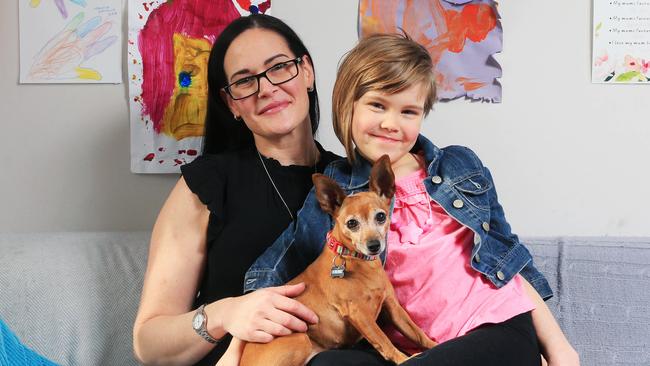Coronavirus: ‘Disbelief’ at single mum supplement cuts
Single mothers will lose their ‘true safety net’ when the Coronavirus Supplement is cut by $300 a fortnight from September.

Melbourne theatre nurse Lara Boyd’s life as a single mother became drastically more complex with the advent of the COVID-19 pandemic.
Ms Boyd’s mother, who is immuno-compromised, could no longer look after her five-year-old daughter Emberly, meaning that Ms Boyd was unable to work the hours she wanted.
She said the $550-a-fortnight Coronavirus Supplement she has been receiving alongside her Parenting Payment Single had been a financial lifeline.
But from September 25, that additional payment will be cut to $250 a fortnight under the federal government’s newly announced stimulus changes.
“That $300 difference is the grocery bill for two weeks,” Ms Boyd said. “I know $150 a week less doesn’t seem much to some people, but when you live in circumstances where you are getting practically no financial support from the other parent, it is very difficult to find money for the essentials.”
The Coronavirus Supplement is available not just to those seeking jobs, but also to a number of other categories including those receiving the parenting payment.
“Basically, it has given me the security to know that even though I can’t work as much as I need to, financially we’ll be okay — that we’ll be able to pay the bills, buy food and other important things,” Ms Boyd said.
“For instance, I have had to do some orthodontic work, and it would have been impossible to pay for that during this time without the full supplement. It will be much harder to manage from September.”
The chief executive of the National Council of Single Mothers and their Child, Terese Edwards, said there was “a sense of complete disbelief” that the Coronavirus Supplement had been cut.
“There has been a sense that this payment was finally working as a true safety net, changing people’s lives, and there isn’t the justification at an individual, community or economic level to lower it now,” Ms Edwards said.
“These women have been using it for exactly what was intended: for essentials, or to upgrade old white goods, or to put into making themselves more employable through study or getting a driver’s licence,” she said.
“And there are women at risk of domestic violence who have told me they’ve used the money to make them and their children safer. It has allowed them to relocate, to put in greater security in their homes, or to go to court to seek necessary orders.”




To join the conversation, please log in. Don't have an account? Register
Join the conversation, you are commenting as Logout